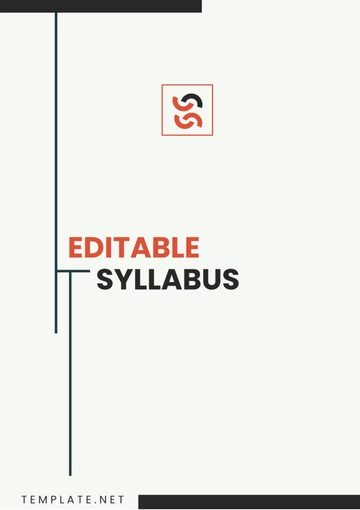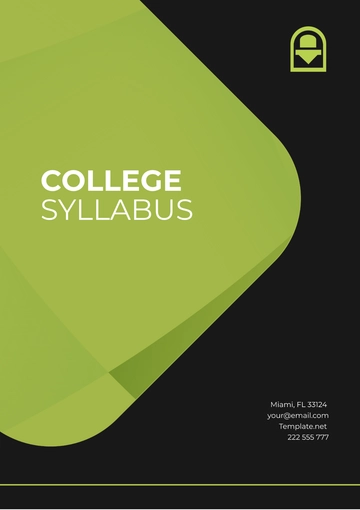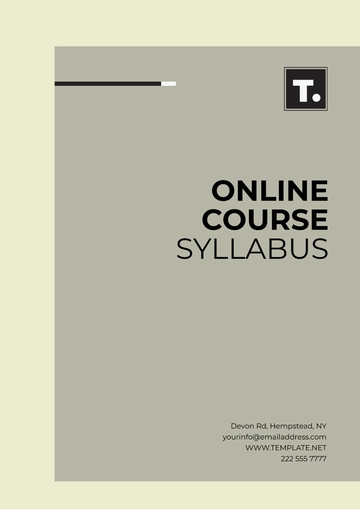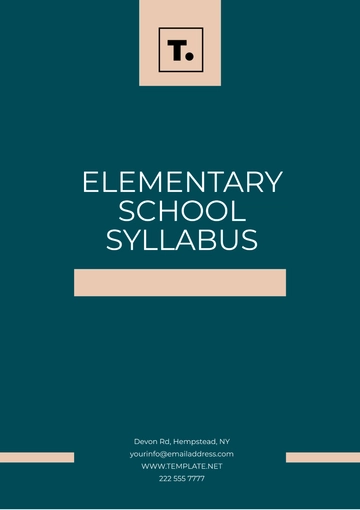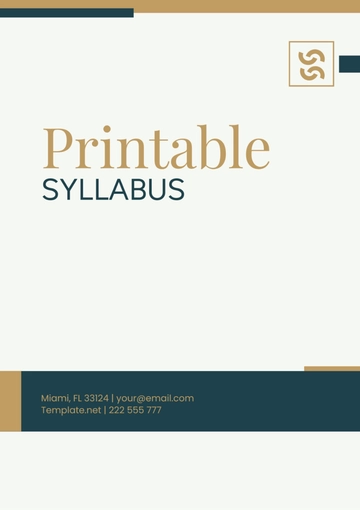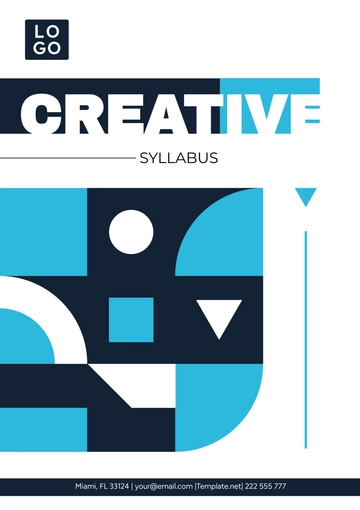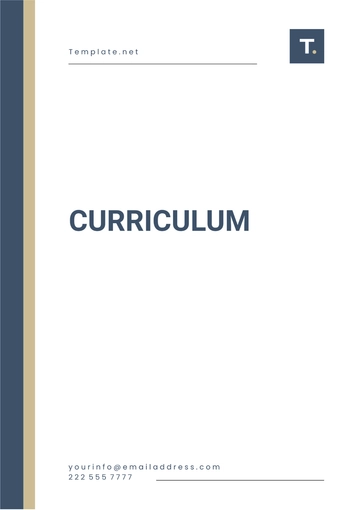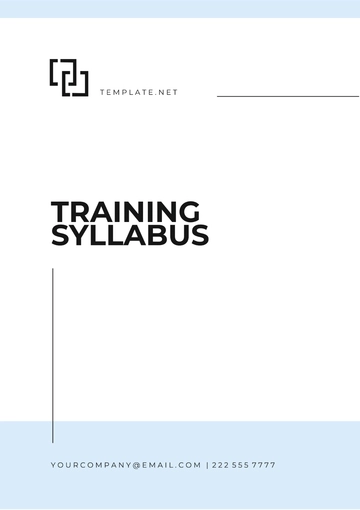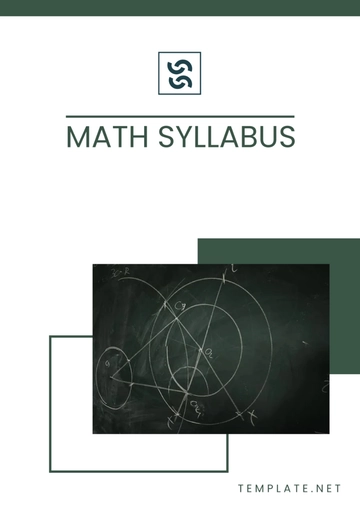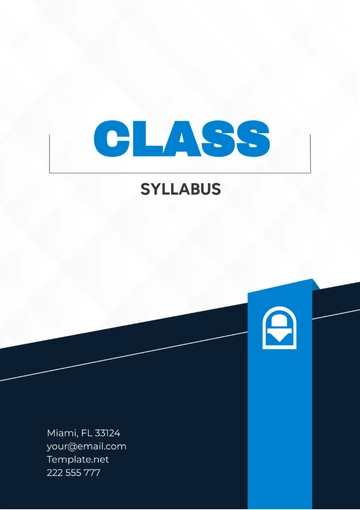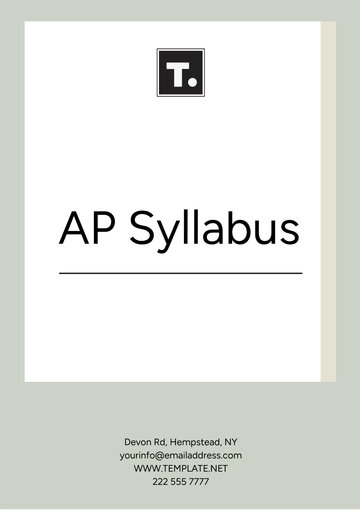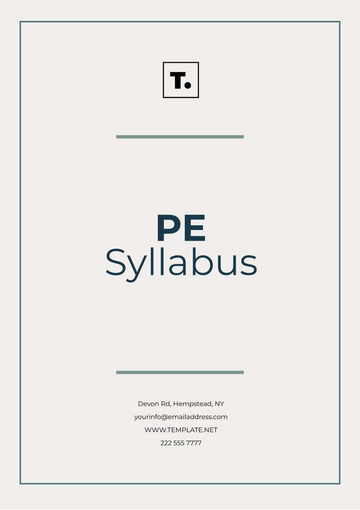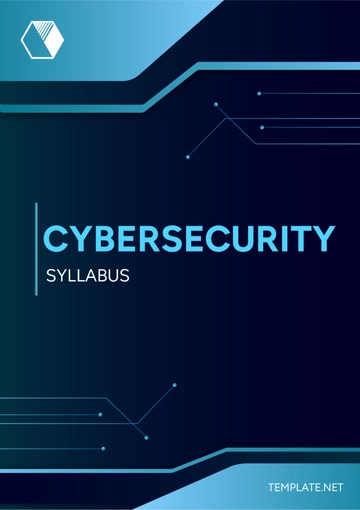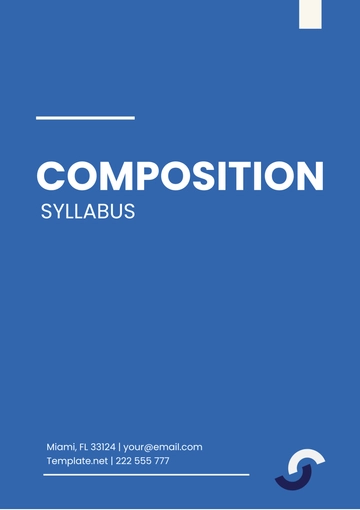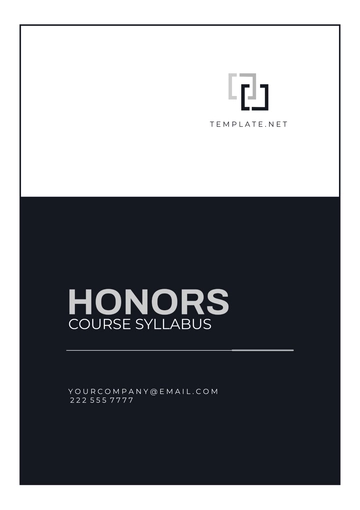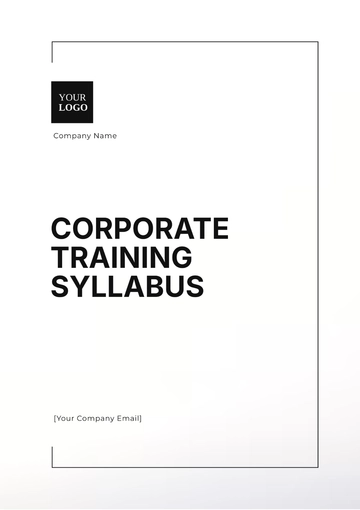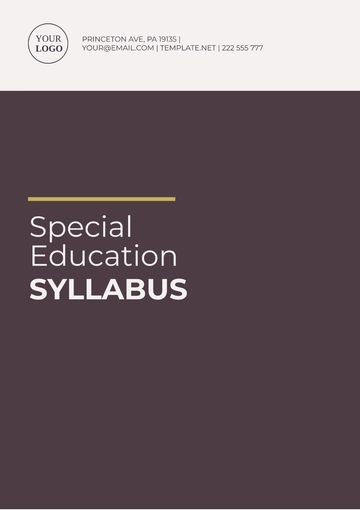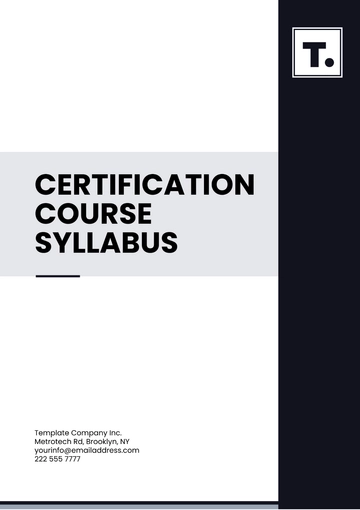Free Bsc Computer Science Syllabus

BSc Computer Science Course
Course Title | [COURSE TITLE] |
Course Code | [COURSE CODE] |
Office Hours | [OFFICE HOURS] |
Class Location | [CLASS LOCATION] |
Class Time | [CLASS TIME] |
Class Duration | [DATE] - [DATE] |
1. Course Description
The Bachelor's in Computer Science is a comprehensive program aiming to equip students with foundational knowledge and practical skills in computing. This course will cover core computer science topics such as algorithms, data structures, databases, programming, and software engineering.
2. Instructor Information
Name: [YOUR NAME]
Contact: [YOUR EMAIL]
Office Hours: [OFFICE HOURS]
organization: [YOUR COMPANY NAME]
3. Learning Objectives
Understand fundamental concepts of computer science.
Design and implement efficient computer algorithms and data structures.
Apply knowledge in computer sciences to solve real-world problems.
Identify ethical and societal implications relating to computer science.
Develop and present technical information in a professional manner.
4. Course Schedule
Week | Topic | Reading |
|---|---|---|
1 | Introduction to Computer Science | Chapter 1 |
2 | Programming Basics | Chapters 2 |
3 | Data Structures | Chapters 3-4 |
4 | Algorithms | Chapters 5-6 |
5 | Software Engineering | Chapters 7-8 |
6 | Database Management | Chapters 9-10 |
7 | Networking Basics | Chapters 11-12 |
8 | Web Development | Chapters 13-14 |
9 | Operating Systems | Chapters 15-16 |
10 | Cybersecurity | Chapters 17-18 |
5. Required Reading and Materials
Primary Textbook: Introduction to Algorithms, 3rd Edition, Thomas H. Cormen
Reference Books: Data Structures and Algorithm Analysis in C++
Java: The Complete Reference
Data Science for Business: What You Need to Know about Data Mining and Data-Analytic Thinking
Online Platform: Codecademy, GitHub
6. Assignments and Assessments
Quizzes: Regular quizzes to assess understanding in lectures.
Programming Projects: Practical application of concepts learned.
Midterm Project: A comprehensive application design to test cumulative knowledge half-term.
Final Project: A comprehensive project to showcase all skillsets gained.
Class Participation: Regular involvement in class works and discussions.
7. Course Policy
Attendance- Regular and punctual attendance is mandatory for all classes.
Participation- Active participation in class discussions is essential.
Assignments- Late assignments will be penalized unless a prior arrangement has been made.
Academic Honesty- All assignments submissions should be original work. Plagiarism will result in an automatic fail.
Respect- Everyone in the class is expected to be respectful towards each other.
8. Grading Policy
Criteria | Percentage |
|---|---|
Quizzes | 20% |
Assignments | 50% |
Mid-term exam | 20% |
Participation | 10% |
Total | 100% |
9. Graduation Requirements:
In order to be considered eligible to graduate, it is necessary for students to successfully complete every single one of the courses that are required for their program. Additionally, they must have achieved at least a minimum Grade Point Average (GPA) of 2.0. Also, any further requirements that are specific to the student's chosen program must be satisfied or fulfilled.
Disclaimer
The syllabus that's being provided for the course is designed to operate as a comprehensive guide. This guide is intended to offer an outline of what students can expect throughout the duration of lessons scheduled for this course. However, it's essential to be cognizant of the fact that there might be instances where changes could possibly be made to this initially provided syllabus. In these circumstances, where alterations to the syllabus become necessary, students will certainly be notified well in advance to prepare them for any changes that could potentially influence their study plans or expectations for the course.
- 100% Customizable, free editor
- Access 1 Million+ Templates, photo’s & graphics
- Download or share as a template
- Click and replace photos, graphics, text, backgrounds
- Resize, crop, AI write & more
- Access advanced editor
Discover the ultimate BSc Computer Science Syllabus Template at Template.net! Crafted for ease, it's fully editable and customizable, ensuring seamless adaptation to your curriculum needs. Tailor-made for efficiency, this template is accessible in our AI Editor Tool, empowering you to refine your syllabus effortlessly. Elevate your teaching experience today!

